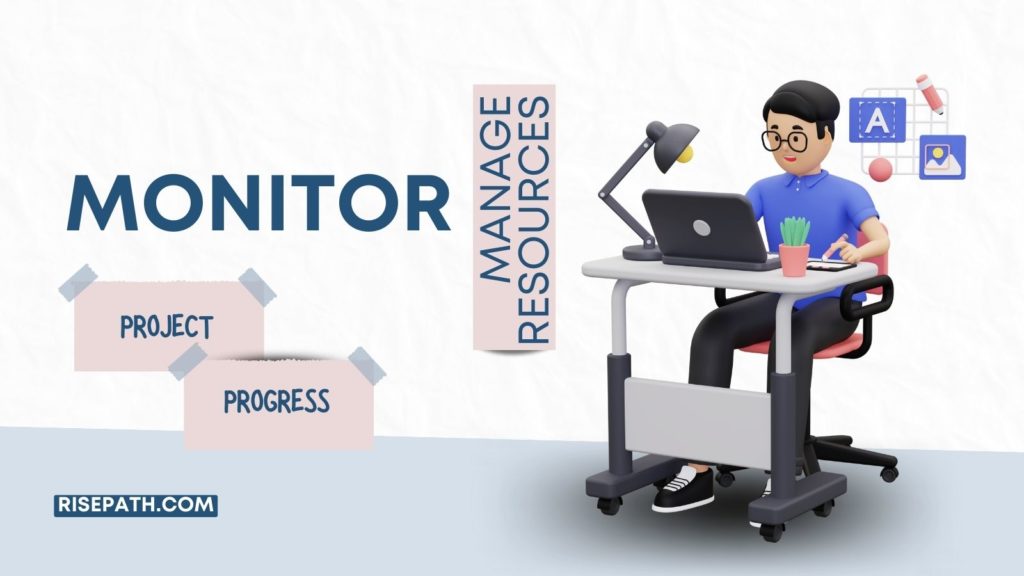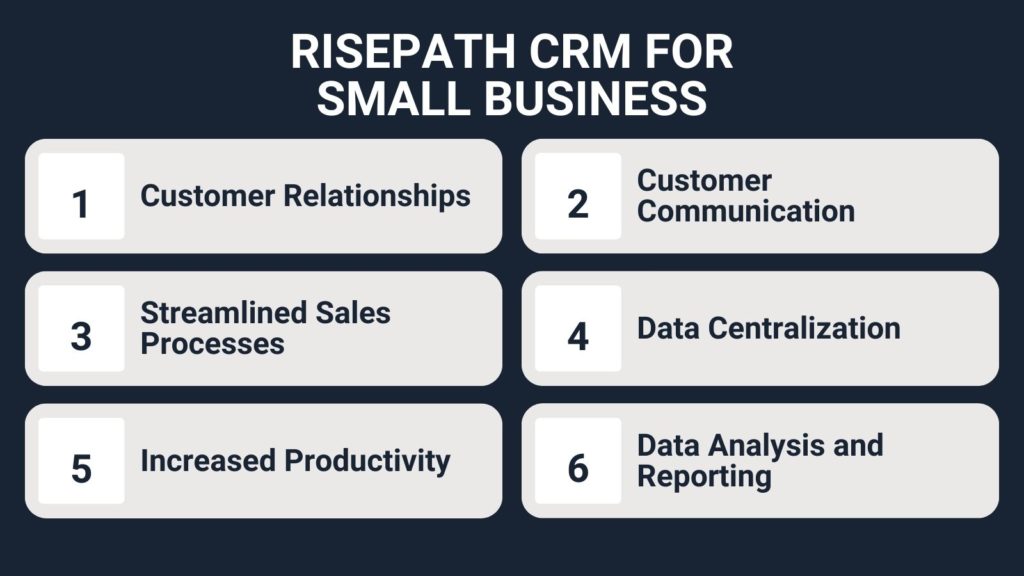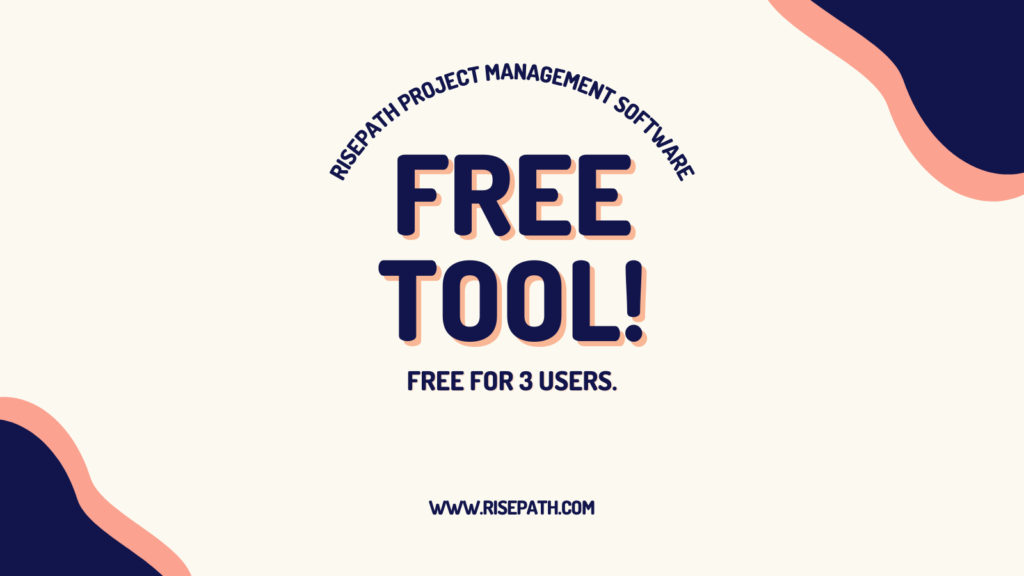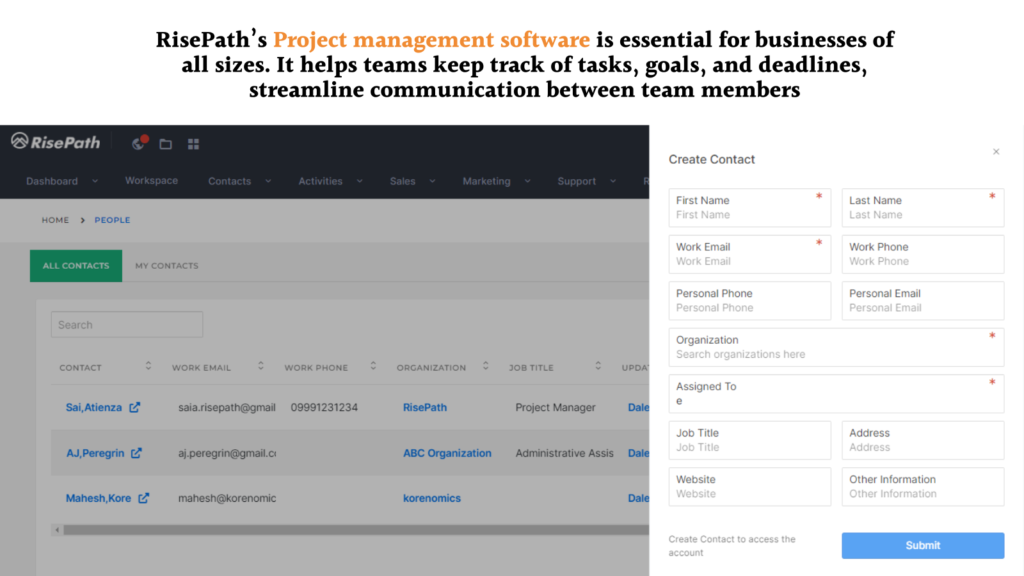A B2B sales funnel is essential for any business that wants to convert leads into customers. However, without the right tools, managing this process can be incredibly time-consuming and inefficient. This is where a Customer Relationship Management (CRM) system comes in. CRM is invaluable for streamlining and optimizing the B2B sales funnel.
CRM can help sales teams to identify potential customers, track their progress through the funnel, and eventually convert them into paying customers. It also allows teams to segment customers into specific categories in order to better target them with relevant messaging. Furthermore, CRM automates key sales tasks, such as creating quotes and invoices, which helps to streamline the sales process and speeds up conversions.
CRM systems also provide real-time analytics and insights to sales teams, enabling them to better understand customer behaviour and make data-driven decisions. This is incredibly useful for personalizing customer experiences and understanding customer needs. CRM systems provide a better customer experience, with features such as automated customer service and personalized messaging.
In essence, a Customer Relationship Management (CRM) system is an essential asset for refining and enhancing the business-to-business (B2B) sales process. It empowers sales professionals to pinpoint and nurture potential clients, categorize customer groups, automate routine activities, and extract valuable knowledge pertaining to customer interactions. Leveraging a CRM system can significantly aid in driving sales efficiency and success.
What is a B2B CRM?
A B2B CRM (Customer Relationship Management) system is an invaluable tool for sales teams looking to stay ahead of the competition. By providing a centralized platform to store customer data and track leads, nurture relationships, and close deals, B2B CRMs enable sales teams to become more productive and efficient. Not only do B2B CRMs help sales teams stay organized, but they also offer insights into customer behavior, allowing them to better understand customer needs and tailor their sales strategies accordingly.
Additionally, B2B CRMs can be integrated with other business systems, such as marketing automation and customer service software, to provide a comprehensive view of the customer experience. This helps sales teams get a better understanding of how their customers are interacting with their brand and makes it easier to identify potential areas for improvement.
For sales teams looking to boost their productivity and increase their customer engagement, a B2B CRM is the perfect solution. By providing a centralized platform to store customer data and track leads, nurture relationships, and close deals, B2B CRMs enable sales teams to become more productive and efficient. Additionally, B2B CRMs provide insights into customer behavior, allowing sales teams to better understand customer needs and tailor their sales strategies accordingly. With the right B2B CRM in place
Why Do You Need a B2B CRM?
For B2B sales, a Customer Relationship Management (CRM) system is a must-have tool to help your team stay organized, efficient and informed. With a CRM, you can maintain up-to-date customer records, monitor customer engagement and track sales opportunities, all in one place. This allows your sales team to quickly identify high-value customers and prioritize their outreach.
Using a CRM also helps you analyze customer data to get deeper insights into customer needs. Automating mundane tasks and streamlining sales processes also free up more time for your team to focus on sales activities. Plus, it offers real-time reporting tools and dashboards to help you identify and track key performance indicators.
A CRM also helps you build relationships with customers by providing personalized experiences and content tailored to their needs. And it allows you to access customer and sales data from any device, enabling you to work on the go.
In short, a B2B CRM enables you to monitor customer engagement, track sales opportunities, analyze customer data, automate mundane tasks, and more – all from one place. It’s the essential tool to help your sales team stay organized and efficient, and to ensure that your customers get the best experience possible.
Benefits of a B2B CRM
Today’s businesses are striving to improve customer relationships in order to increase sales and retain customers. CRM for B2B Sales is an effective tool that can help companies streamline communication between sales teams and customers, manage customer relationships, and automate and track sales and customer service activities.
CRM for B2B Sales is a powerful tool that can help businesses identify new customer opportunities, enhance data accuracy and tracking, and improve sales efficiency by analyzing customer data. It can also help businesses enhance customer segmentation and targeting, facilitate customer retention and loyalty, enable sales teams to react quickly to customer needs, and generate detailed reports to measure and assess performance. With powerful insights into customer buying habits, CRM for B2B Sales can help businesses make better, data-driven decisions.
By leveraging CRM for B2B Sales, businesses can improve the customer experience, increase efficiency, and optimize customer relationships. With the help of CRM for B2B Sales, businesses can maximize their revenue and create lasting customer relationships.
1. Automate Repetitive Tasks
In the modern business world, streamlining operations and optimizing efficiency is essential for success. Business-to-business (B2B) sales teams can benefit from the use of customer relationship management (CRM) software to automate their processes and increase efficiency.
With CRM for B2B sales, teams can automate their repetitive tasks to save time and resources that can be better spent on more important tasks. Automation also helps ensure accuracy and consistency in the data that is gathered and stored. This can help maximize customer satisfaction by providing faster response times and more accurate information. Automation can also reduce the need for manual data entry, freeing up time for sales reps to focus on more strategic tasks.
Also Read: Maximizing Your Email Marketing Potential with Free Email Marketing Software
CRM for B2B sales can also help automate customer onboarding processes, ensuring a smooth transition for new customers. Automated marketing campaigns can help identify leads more quickly and accurately. Automation can also help eliminate potential errors in data entry and keep your customer data up to date. Automated reports and analytics can help sales teams make more informed decisions.
Harnessing the capabilities of a CRM system transforms B2B sales processes. Utilizing automation tools within CRM allows sales teams to optimize their workflow. As routine tasks are automated, sales personnel can dedicate their efforts to more critical aspects of their roles, enhancing productivity and driving sales forward.
2. Seamlessly Manage Client Data
Customer Relationship Management (CRM) software has quickly become a must-have for businesses that are serious about optimizing their B2B sales. CRM software is a powerful tool that helps companies keep track of customer data and manage customer relationships. With CRM, B2B sales teams can effectively collect, store, and manage customer data, capture and store customer communication across multiple channels, and create personalized customer experiences by quickly accessing customer data.
Also Read: The Role of Email Marketing in Customer Retention
CRM also helps companies keep track of customer sales data, preferences, and purchase history. This data can then be used to create targeted emails and notifications, analyze customer data to identify trends and insights, generate detailed reports on customer activity and performance, and easily share customer data with other departments for better collaboration.
By leveraging the power of CRM, B2B sales teams can streamline their operations, increase efficiency, and improve customer relationships. With a CRM system in place, companies can ensure that customer data is used in the most effective ways and that their sales team is able to provide the best customer experience.
3. Identify Roadblocks in Your Sales Process
Business-to-business (B2B) sales can be a complex process, with many different steps involved. Fortunately, customer relationship management (CRM) software provides a powerful tool to help streamline the process and identify potential roadblocks before they occur. By utilizing CRM, B2B sales teams can effectively identify areas where sales progress is getting stuck or slowing down, analyze the data to identify when, where, and why these roadblocks are occurring, and create strategies to address them.
Using CRM to analyze sales data can help sales teams look for common trends in the data, such as common objections or reasons for delays. With this data, sales teams can create strategies to address common roadblocks, such as improving customer education or offering discounts for faster sales cycles. After implementing these strategies, sales teams can then analyze their effectiveness to identify areas for further improvement.
CRM also provides B2B sales teams with an invaluable tool to monitor sales performance and identify potential roadblocks before they occur. By utilizing the CRM to collect and analyze data, sales teams can gain valuable insights into customer behavior and identify areas where sales progress is being hindered. This enables sales teams to proactively address any potential roadblocks, resulting in improved sales performance and results.
Difference between a B2B CRM system and a B2C CRM system?

As businesses become more and more reliant on technology to manage their operations, many have turned to CRM systems to help manage their customer relationships. CRM stands for customer relationship management and is a software-based system that helps businesses to track and manage customer interactions and transactions. While there are a variety of CRM systems available, there are two main types: B2B CRM systems and B2C CRM systems.
B2B CRM systems are designed to manage interactions with other businesses (clients, partners, etc.), while B2C CRM systems are designed to manage customer relationships with individuals. B2B CRM systems are typically used to manage sales, marketing, customer service, and support activities for multiple customer accounts. B2C CRM systems focus on managing individual customer relationships. B2B CRM systems often allow for customizations that are tailored to the unique needs of the business. B2C CRM systems are usually less customizable and focus on automating processes such as online shopping, customer lead generation, and customer service.
B2B CRM systems are designed to handle large volumes of data and are used to manage complex customer relationships. B2C CRM systems are designed to handle smaller volumes of data and are used to manage simple customer relationships.
Number of leads
The success of B2B sales depends on a reliable customer relationship management (CRM) system. An effective CRM for B2B sales should allow for easy tracking of leads, providing detailed information on each lead, such as contact information, company and product interests, and past interactions. Automated lead scoring can help sales teams prioritize leads based on their likelihood of closing, while integration with other marketing automation tools can help capture leads from multiple sources and keep them in one place.
A CRM can also provide insights into the customer journey, helping sales teams identify patterns in customer behavior and adapt their tactics accordingly. Advanced reporting capabilities can help sales teams gain insight into their performance and optimize their strategies over time. With such powerful tools, B2B sales teams can make the most of their customer relationships and maximize their success.
Number of stages in the sales process
Prospecting plays a key role in any successful B2B Sales strategy. Utilizing a Customer Relationship Management (CRM) system to identify targets, research, and qualify leads, can increase efficiency and ensure that no opportunities are missed. Once identified, initial contact with prospects can be made to build relationships, and demonstrate the value of a product or service. With the right CRM system, sales reps can easily create and deliver presentations and demos to potential customers. Negotiating the best price and terms is an important step in the process, and having detailed customer information at your fingertips can help close the deal faster.
Finally, following up on the sale is necessary to ensure customer satisfaction and loyalty. CRM technology can give sales reps the tools they need to effectively manage the sales process from start to finish.
What role does a B2B CRM system play in a sales and marketing plan?
The B2B sales process can be time-consuming and complex, with many stakeholders and potential customers to keep track of. A Customer Relationship Management (CRM) system can help simplify the process and ensure that sales and marketing teams have the information they need to close deals.
A B2B CRM system helps to store information about customers and prospects, including contact details, sales history, and other relevant data. This data can provide valuable insights into customer buying patterns and preferences, allowing sales and marketing teams to create targeted campaigns and offers. With a B2B CRM system, sales and marketing teams can track leads from initial contact to close, allowing them to adjust their tactics as needed. This provides visibility into the sales pipeline, allowing sales and marketing teams to identify opportunities and take quick action.
A B2B CRM system can also provide automated features, such as sending emails, newsletters, and other marketing materials, speeding up the sales process and increasing efficiency. By offering a 360-degree view of customers and prospects, a B2B CRM system can help sales and marketing teams create personalized customer experiences.
A B2B CRM system is a powerful tool that can help sales and marketing teams to streamline their sales process and maximize their efficiency. With the right system in place
Where does B2B CRM come into the sales process?
Business-to-business (B2B) Customer Relationship Management (CRM) is a powerful tool that can help sales teams better track leads and customer data, providing insights into customer preferences and buying behaviors. It can help reps close more deals by giving them the customer information they need at the right time, as well as identify sales patterns and trends to adjust their strategies accordingly. Plus, B2B CRM can help streamline communication between sales reps and customers, allowing for faster responses and better customer service.
B2B CRM can also be utilized to automate customer follow-up tasks, providing a more efficient way for sales teams to nurture leads. This can help sales reps build stronger relationships with customers by providing them with personalized experiences. By leveraging the power of B2B CRM, sales teams can increase their efficiency and effectiveness, ultimately leading to better customer relationships and more sales.
Get Personalised Insights into Your Business
Customer Relationship Management (CRM) is essential for B2B sales teams seeking to gain a competitive edge in today’s marketplace. With a CRM system in place, businesses can get detailed insights into customer behaviour and preferences, which helps inform their sales strategies. By automatically capturing customer data, businesses can easily identify trends and spot opportunities to increase sales.
CRM enables businesses to analyse customer data and understand their needs and preferences, allowing them to adjust their sales strategies accordingly. Automating sales processes also helps to save time and increase efficiency, while anticipating customer needs and providing tailored solutions further enhances the customer experience.
CRM helps businesses track sales cycles and measure the success of sales campaigns, as well as monitor customer activities such as website visits and email interactions. Generating reports provides a comprehensive understanding of customer behaviour and sales performance, while automating lead and customer scoring quickly identifies hot prospects. Finally, integrating CRM with marketing automation tools enables businesses to streamline lead nurturing and customer engagement.
By leveraging a CRM system, B2B sales teams can gain the insights they need to stay ahead of the competition and build lasting relationships with their customers.
Frequently Asked Questions
If you’re in the B2B sales industry, you know the importance of having a reliable and effective CRM system in place. But what exactly is CRM for B2B sales? CRM stands for Customer Relationship Management and is a suite of software used to manage customer data, sales leads, and marketing campaigns. It’s designed to help streamline sales processes and improve customer relationships.
There are a variety of different CRM solutions available, from dedicated software packages to cloud-based services. Depending on your business needs, you can choose from basic CRM systems to more sophisticated solutions that offer additional features such as performance tracking and customer segmentation.
Using a CRM system can help you increase B2B sales by giving you a better understanding of your customers and their buying habits. It can also make it easier to keep track of leads and follow up on sales opportunities. Additionally, CRM systems can help you streamline customer service processes and provide you with valuable insights into customer preferences and buying behaviors.
When you choose a CRM system for your business, there are several key features to look for. The system should be easy to use and allow you to customize your data fields and reports to meet your specific needs. You’ll also want to make sure the system is secure
Do sales funnels really work?
For businesses that are looking to increase their B2B sales, implementing a customer relationship management (CRM) system can be a great way to help streamline the sales process. Sales funnels are an important part of any CRM system, as they provide a framework for creating a customer journey that is tailored to their needs and expectations. By understanding customer needs and preferences, sales funnels can more accurately target potential buyers, resulting in higher conversion rates and more efficient sales processes.
Sales funnels can also provide valuable data and analytics that can be used to identify which areas your sales team needs to focus on. This data can be used to help you develop more effective strategies for reaching and engaging customers in the B2B space. Additionally, sales funnels can help you track customer engagement and conversations over time, providing insight into customer behavior and preferences. Finally, sales funnels can help you optimize your sales process to ensure that customer needs are met and sales goals are achieved.
Using a CRM system with sales funnels can be a great way to improve your B2B sales process and increase customer satisfaction. By understanding customer needs, tracking engagement, and optimizing your sales process, you can ensure that your sales goals are met and your customers are happy.





Comments are closed, but trackbacks and pingbacks are open.